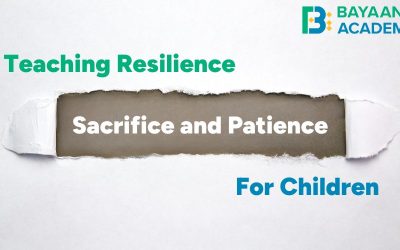Stress can be defined as a physiological and psychological response to external or internal pressures, challenges, or changes in one’s life. It often results from the perception that the demands placed on an individual exceed their ability to cope. This response triggers a series of physical and emotional reactions, including increased heart rate, heightened alertness, and feelings of tension, which can have both short-term and long-term effects on an individual’s well-being. Here are a few tips that can help manage stress effectively:
- Find Solace in Dhikr and Salah
The Messenger of Allah PBUH said: “Whoever wishes that Allah would respond to him during hardship and grief, then let him supplicate plentifully when at ease.” [Tirmidhi]
Engaging in the remembrance of Allah (Dhikr) and offering regular prayers can serve as potent tools in combating stress and promoting emotional well-being.
Allah (SWT) says in the Holy Qur’an: “Truly it is in the remembrance (dhikr) of Allah that hearts find peace.” (13:28)
The essential key, therefore, lies in the practice of Dhikr, which involves constantly and consciously remembering Allah. When you engage in this mindful remembrance, your heart experiences a profound sense of relaxation and connection to the One who governs all aspects of existence. Through sincere dedication and over time, you reach a point where nothing can rival the delight of remembering, worshiping, and spending solitary moments with Him. A significant source of our anxiety often arises from our excessive attachment to the material world. The more we engage in Dhikr, the less preoccupied we become with worldly concerns, ultimately reducing our worries.
- Focus on Breathing and Movement
In the quest for effective stress management, the combination of physical exercise and mindful breathing stands as a dynamic duo, ready to tackle the challenges of stress head-on. Incorporating regular physical activity into your routine, such as brisk walks, yoga, or even a quick home workout, not only helps to release endorphins, the body’s natural stress reducers but also improves overall well-being. Moreover, engaging in a simple yet powerful deep breathing exercise, like the 4-7-8 technique, can work wonders. Inhale for a count of four, hold your breath for seven, and exhale slowly for a count of eight. This method calms the nervous system and promotes relaxation, making it an essential tool in your stress-busting arsenal.
- Brainstorm Stress Relieving Distractions
Assist yourself in identifying enjoyable and stress-relieving activities to incorporate into your daily, weekly, and monthly routines. Whether it’s reading a book, shooting hoops, engaging in art like painting, or spending time with friends you enjoy with, these activities can serve as effective and positive distractions for the brain. Participating in activities one finds enjoyable triggers the release of feel-good chemicals, such as endorphins, which act as natural stress relievers. This not only provides a break from stressors but also positively impacts mood and mental well-being. Encouraging yourself to engage in such activities regularly can contribute to building resilience and developing healthy coping mechanisms to navigate stress in various aspects of life.
- Practice Gratitude
Another, and perhaps the most subtle, factor that can distance happiness from our lives and open the door to stress is our lack of gratitude for our present circumstances. When we constantly compare ourselves to others, fostering feelings of envy and discontent, we sabotage our own well-being. Failing to appreciate what we have inhibits our ability to envision acquiring more.
In the Quran, Allah Almighty states: ‘And (remember) when your Lord proclaimed: ‘If you give thanks, I will give you more (of My Blessings), but if you are thankless, verily! My punishment is indeed severe’ (14:7).
Gratitude is a powerful tool, not only in the realm of personal growth but also in the pursuit of happiness. It signifies contentment, which is a potent force in overcoming stress. Hence, practicing gratitude is the key to finding happiness in both our current situations and our future endeavors.
- The Power of Hope and ‘Husn az Zann’
Jabir bin ‘Abdullah (May Allah be pleased with him) reported: I heard the Prophet (ﷺ) saying three days before his death: “Let none of you die unless he has good expectations from Allah”.
[Muslim]
This wisdom encapsulates the essence of ‘Husn az Zann’ – beautiful thinking, where ‘Husn’ represents positive or good, and ‘Zann’ embodies expectation or thinking.
Allah’s Messenger (ﷺ) said, “Allah said, ‘I am to my slave as he thinks of Me, (i.e. I am able to do for him what he thinks I can do for him).
[Bukhari]
In the face of life’s challenges, remember that every hardship serves a purpose. It either strengthens us or purifies our souls, elevating our status in the eyes of Allah. When your world seems to crumble, hold on to hope, for it’s this very hope that propels us forward. As we think of Allah, so He is to us; our faith shapes our destiny. Therefore, let your hopes be the brightest stars in your darkest nights, for with unwavering conviction, Allah will surely fulfill them all. “Husn az Zann” is a reminder that your thoughts and beliefs are powerful and can influence your perception of and reaction to stressful situations. By aligning your thoughts with positive expectations, you can better navigate life’s challenges and reduce the impact of stress on your well-being.





0 Comments